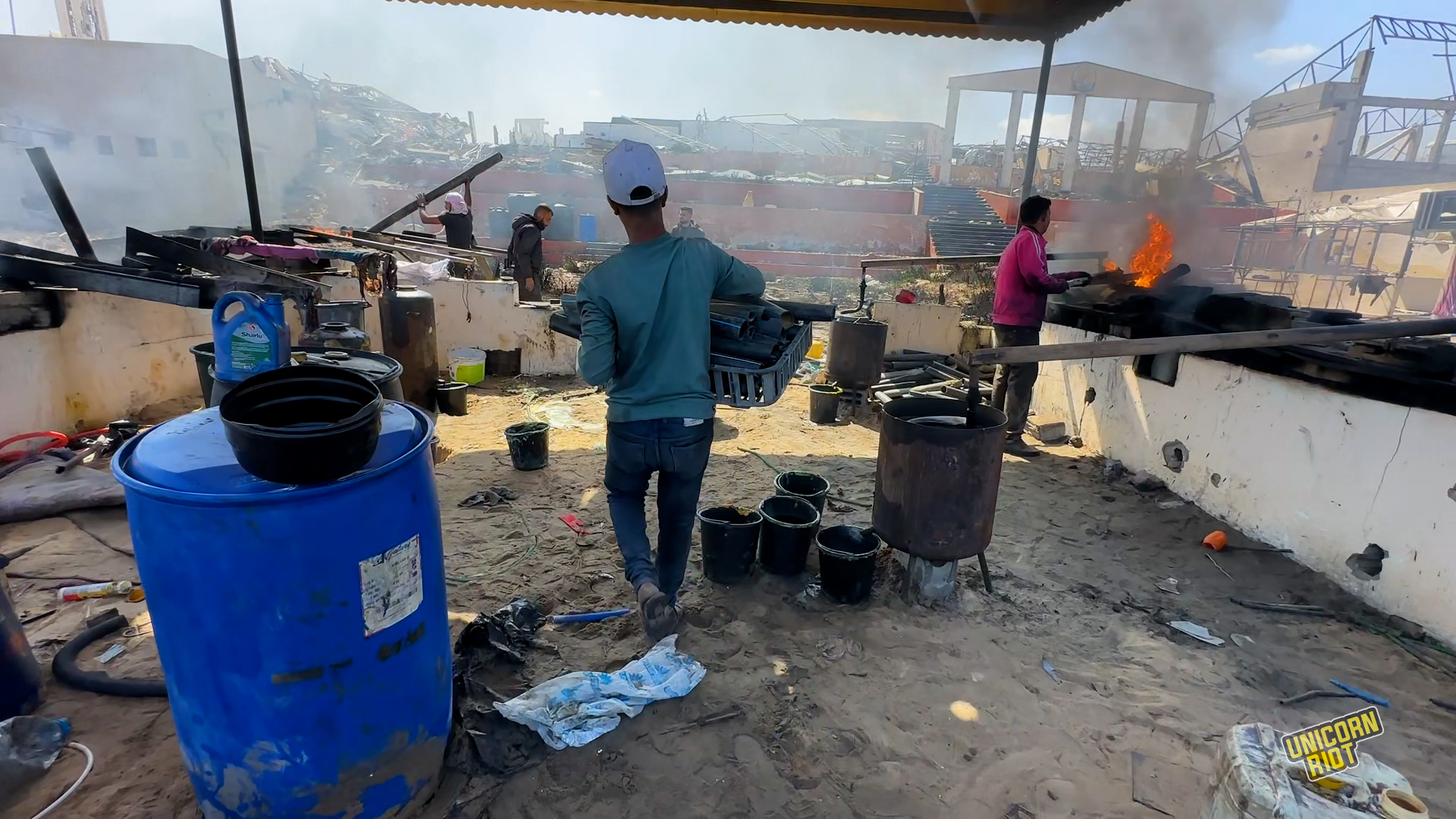Gazans Make Diesel From Plastic Amid Genocide
Gaza City, Palestine — With the US-backed genocide of Palestinians in Gaza continuing unabated and the border crossings closed by Israel, the ingenuity and resolve of Gazans continues to shine amid the ethnic cleansing being waged on them. As no diesel or gasoline is allowed into the Gaza Strip, citizens have come up the successful idea of converting plastic into diesel and gasoline to be used for means of transportation.
In the west side of war-torn Gaza City, Unicorn Riot was given a tour of the makeshift processing center where plastic waste is melted into diesel. “The country needs diesel—it needs to move,” said 22-year-old worker Saad Abu Ajwa, “if diesel doesn’t come in, everything stops. Hospitals shut down, clean water stations stop, transportation halts. This work is not a choice—it’s a necessity.”
There are several steps to make the industrial diesel from recycled plastic and each one is tedious in it’s own respect. First, the plastic is collected “from rubble, demolished buildings, and waste from the war and whatever’s left over,” said Abu Ajwa.
They then break the plastic down into small pieces to place in one of the several fire pits. The fire produces grease that is then processed in another fire.
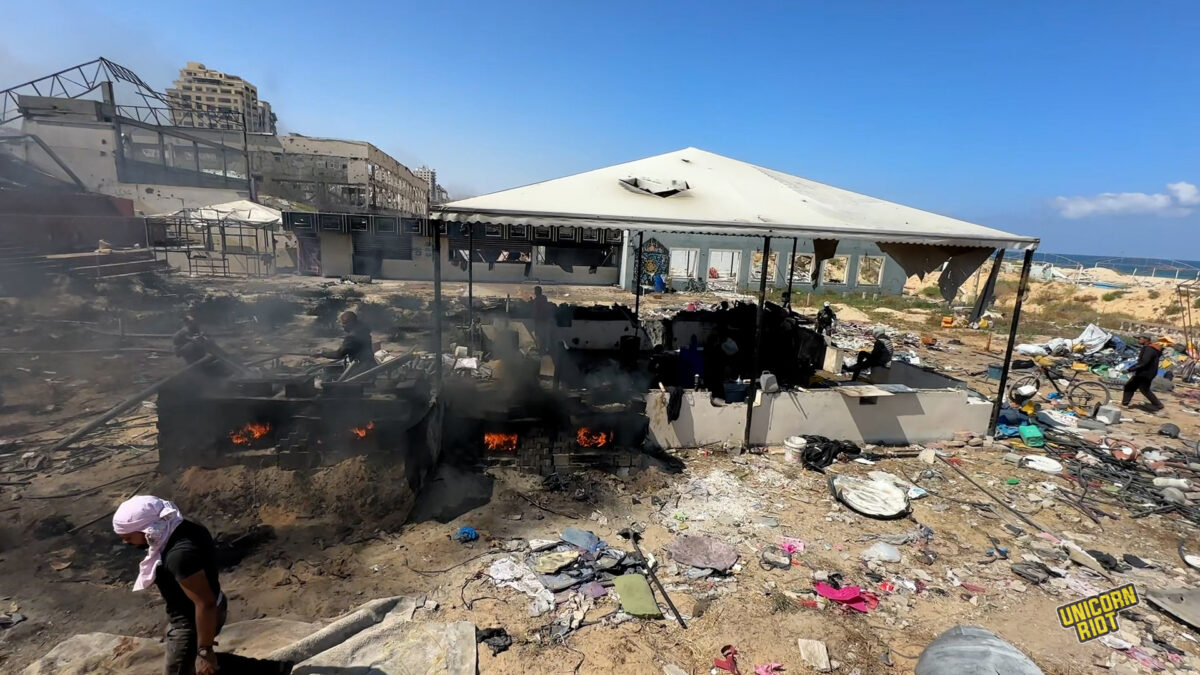
They keep a person cooling the pipe where it comes out to help the extraction. “The gasoline comes first because it’s light, then the diesel,” said Abu Ajwa. The fuel is then stored for customers.
“We produce 500 liters of diesel daily,” said Abu Ajwa. “We opened this place because the crossings are closed and the desalination plants—the people need drinking water, the desalination plants need power, and transportation needs power too—they all run on industrial diesel.”
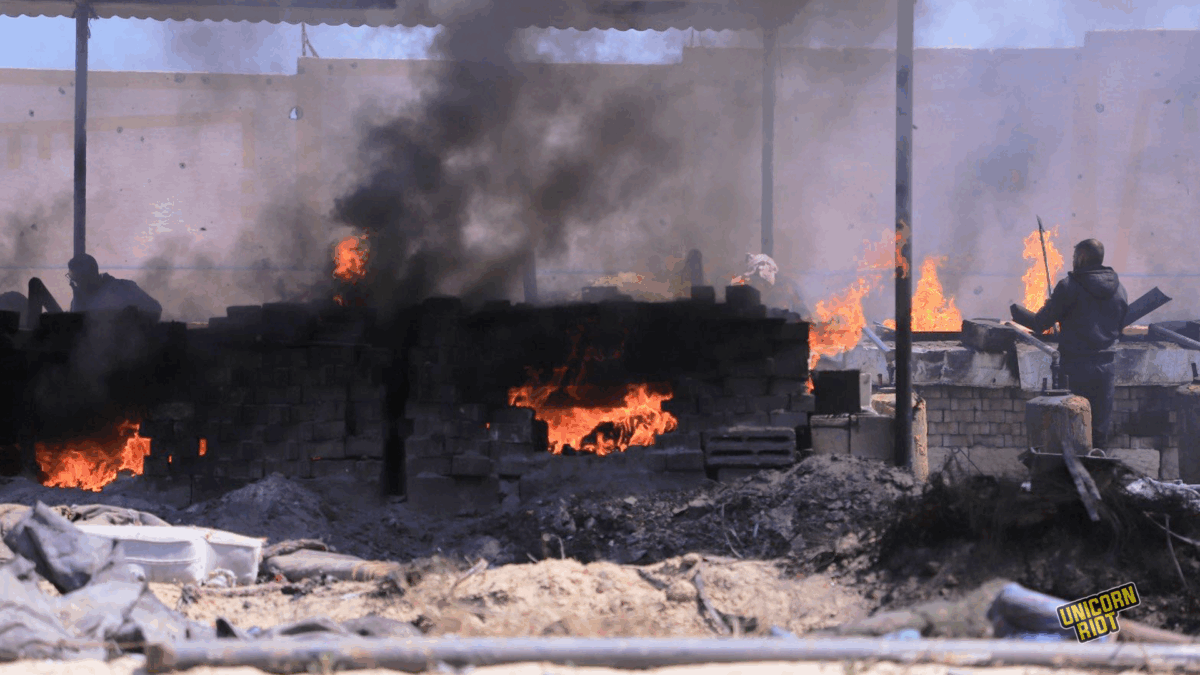
Abu Majed Sakr came to get fuel for his tuk tuk (motorized rickshaw) and said that the cost was about a fifth of that of Israeli diesel. He told Unicorn Riot contributor Mohamed El Saife that cars can also run on the industrial diesel if it’s mixed with Israeli diesel.
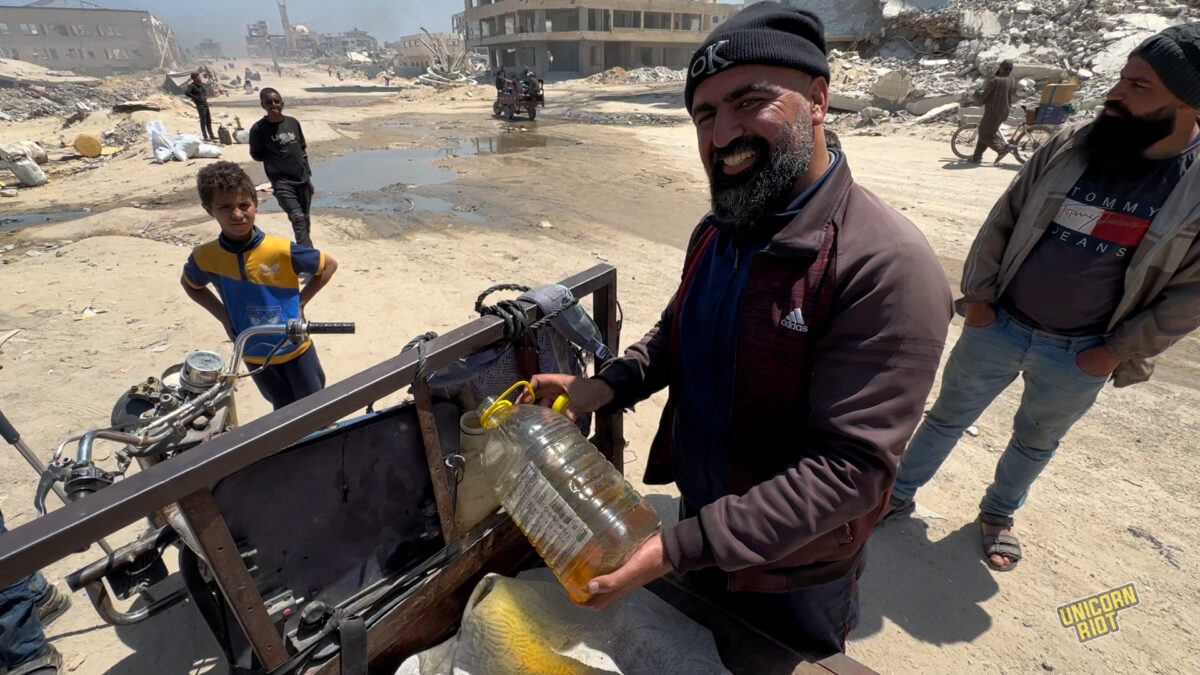
Majed Sakr noted that without the production of the diesel from recycled plastic, the cost of buying donkeys for transportation would rise exponentially.
“If we didn’t produce this industrial gasoline, everything would stop—and the problems you see wouldn’t be solvable. Israeli diesel is 250 shekles, something like that. While here it is 50, 60, 70 shekels at most. And the cleanest product is 70—you see? If we don’t do this, a donkey which costs 100 dinars will reach 10,000 dinars. You see? There are even cars that run on it—old Mercedes models from the 90s and 2000s can run on it. New cars also run on our industrial diesel. They mix it with the Israeli diesel. To keep things moving—transportation must go on. Life has to continue, you know what I mean? That’s the life we’re living now.”
Abu Majed Sakr
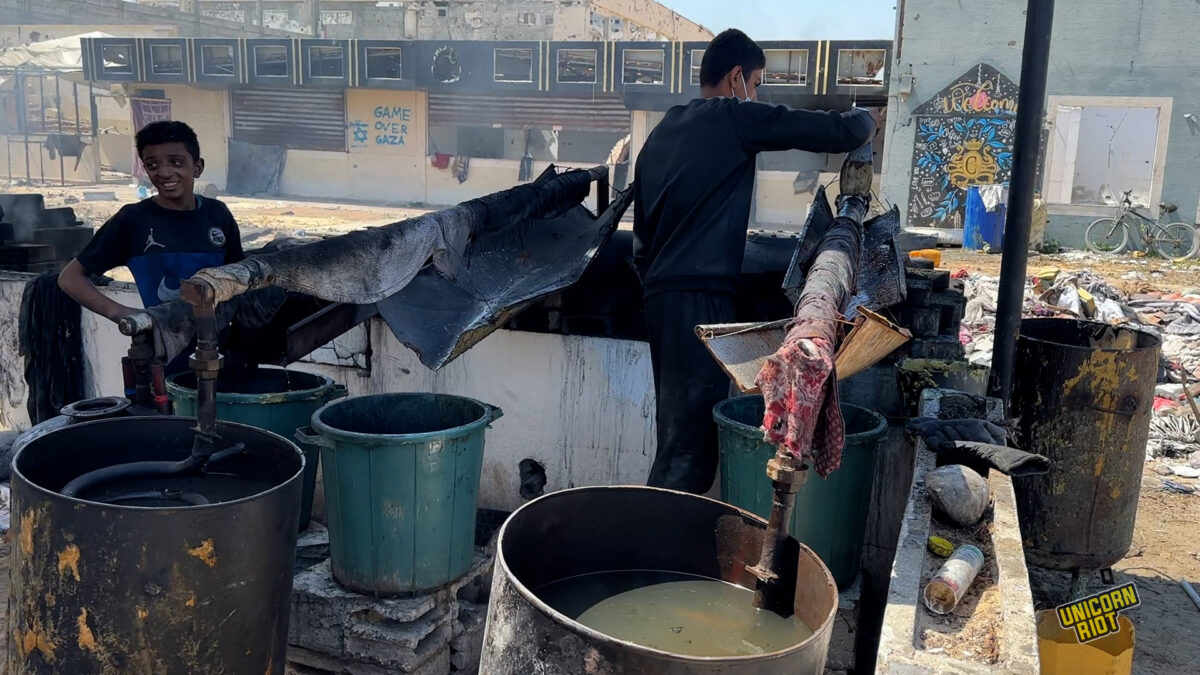
This process is absolutely not clean. Burning plastic is really bad for the environment as well as the individuals working at the makeshift center. “It takes time, effort, and exhaustion, and it badly affects people’s health too,” said Abu Majed Sakr.
Toxins released from burning plastic can “disrupt neurodevelopment, endocrine, and reproductive functions” and lead to cancer, heart disease, and many more serious health conditions, according to the US National Institute of Environmental Health Sciences.
“And I, of course, deal with the dust and smoke and the burning,” said Abu Ajwa, “this all goes into your lungs and makes you cough all night. It’s exhausting. It wears you out completely. The work is tough—not easy. It’s fire, and we all got burned here. We’ve all been burned by this fire.”
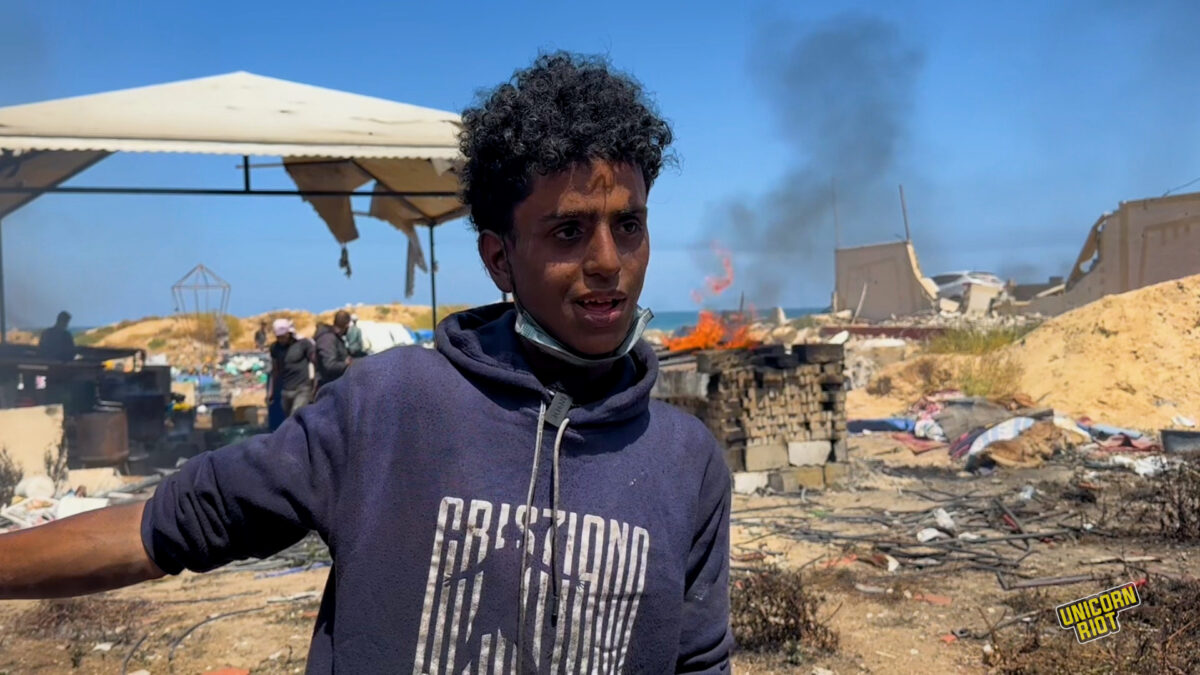
The fact that someone as young as Abu Ajwa would take this health-depriving work of burning plastic to make industrial diesel as “necessity” and “not a choice” points to the survival and resolve of Palestinians under occupation and facing daily war crimes.
Help support Unicorn Riot contributor Mohamed El Saife as he seeks to get his family out of Gaza.
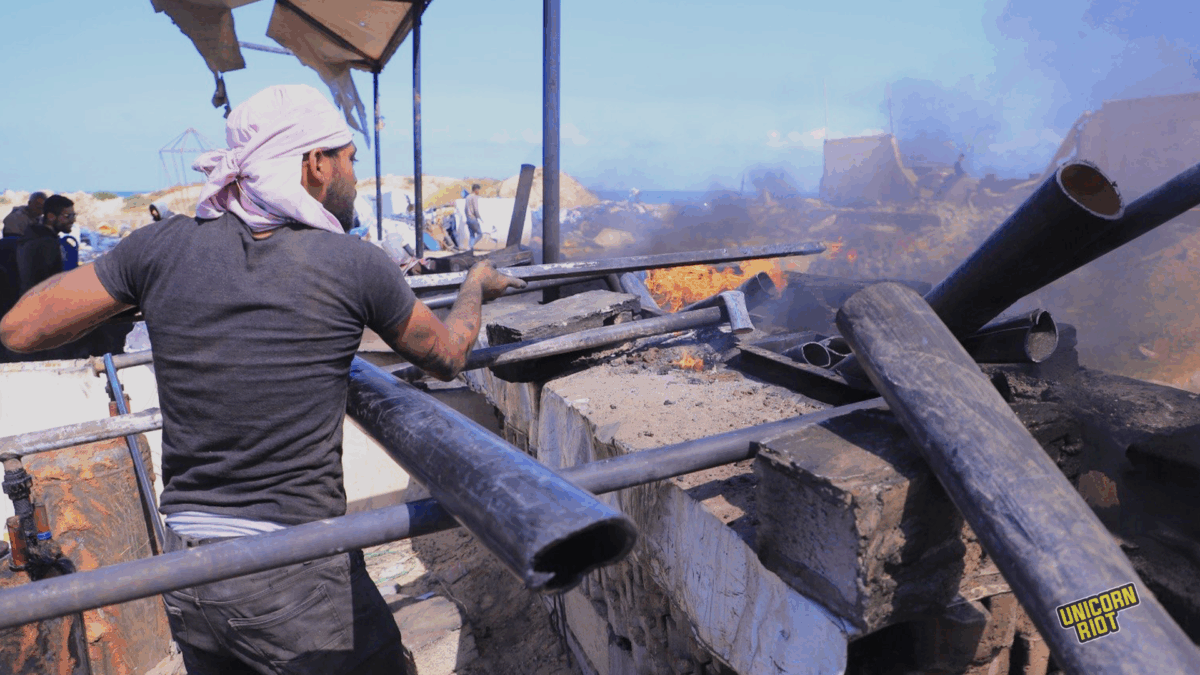
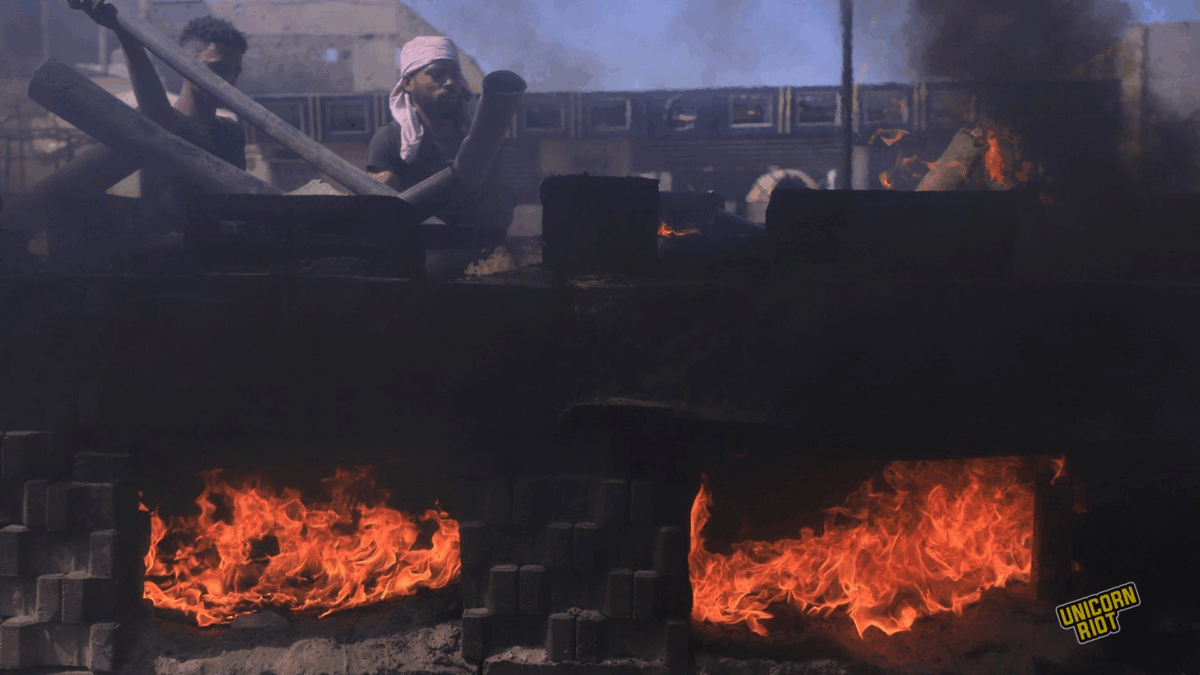
More media from Palestine in the image below.
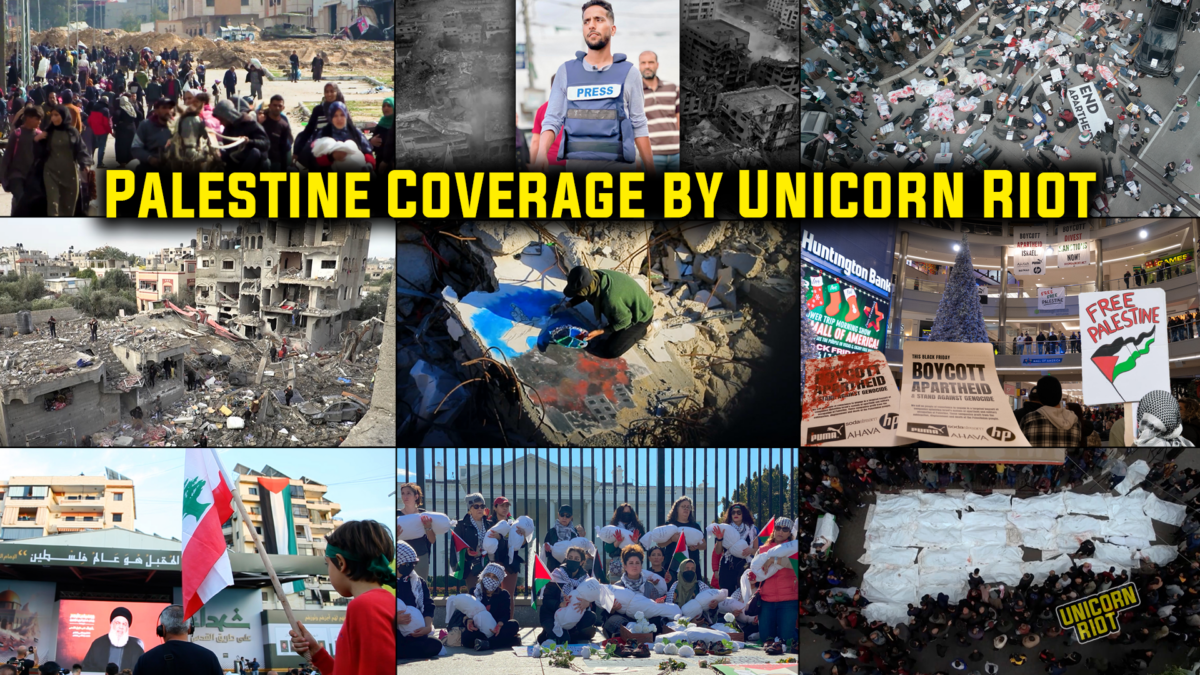
Follow us on X (aka Twitter), Facebook, YouTube, Vimeo, Instagram, Mastodon, Threads, BlueSky and Patreon.

